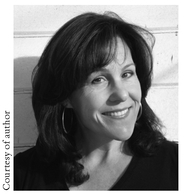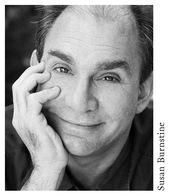Table of Contents
A PLUME BOOK
THE BIG JEWISH BOOK FOR JEWS
ELLIS WEINER and BARBARA DAVILMAN are authors of Yiddish with Dick and Jane, Yiddish with George and Laura, How to Raise a Jewish Dog, How to Profit from the Coming Rapture, Arffirmations: Meditations for Your Dog, and Catechisms: Fundamentals of Feline Faith.
Ellis, solo, is author of, among other books, Decade of the Year, The Joy of Worry, Drop Dead, My Lovely, The Big Boat to Bye-Bye, Santa Lives! Five Conclusive Arguments for the Existence of Santa Claus, and Oy! Do This, Not That!
Barbara is coeditor, with Liz Dubelman, of What Was I Thinking?
They are married (to each other) and live in Los Angeles.
Also by Ellis Weiner and Barbara Davilman
YIDDISH WITH DICKAND JANE
YIDDISH WITH GEORGE AND LAURA
HOW TO RAISE A JEWISH DOG
HOW TO PROFIT FROM THE COMING RAPTURE
(BY STEVE AND EVIE LEVY, AS TOLD TO ELLIS WEINER
AND BARBARA DAVILMAN)
ARFFIRMATIONS: MEDITATIONS FORYOURDOG
CATECHISMS: FUNDAMENTALS OF FELINE FAITH
To Marsha Weiner
and
Andrew Davilman,
who were there, too.
ACKNOWLEDGMENTS
Thanks to:
Adam Abramowicz for speed, accuracy, and patience in the execution of the original art. As usual.
INTRODUCTION
A young rabbi, recently installed in a synagogue, is informed by the shamos that the building has rats. They call this exterminator and that exterminator but nothing works. The rats remain. Finally the rabbi, at the end of his rope, calls the previous rabbi, who has retired to Arizona. The young man explains the problem and the elder rabbi says, Ah, yes. Ive heard of this problem at a different shul. Heres what you do. Wait in the sanctuary until the next time the rats come out. When they do, perform a Bar Mitzvah service for all of them. Believe me, after that, youll never see them again.
Thus, what we might call The Rabbis Lamentthat once a Jewish child is Bar (or Bat) Mitzvah, the child quits Hebrew school and loses all interest in his or her religion. And so do the parents. Maybe they continue to attend services for High Holy Days, but after a while, not even.
You may be such a person, or you may know someone who is. Were talking about Jews who:
Show up for work one day and wonder why the place is deserted. When they ask, its up to the Gentiles in the office to explain that its Yom Kippur.
Have a Christmas tree in their living room because its festive.
Respect their children as individuals and accept their fashion choices.
When they have to call a doctor, have to look up the number.
Stop eating when theyre full.
Respond to hearing the phone ring by picking it up and saying, Hello? with neither despair nor panic.
These kinds of behaviors are increasingly common among American Jews. Never mind the problems posed by intermarriage, resurgent anti-Semitism, investment frauds, and controversy over support for Israel; the direst threat to Judaism in the U.S. today is its very success.
There is not one facet of American life in which Jews have not made significant contributions and attained appreciable power and prestige, from the arts and entertainment, to business and finance, to the sciences and medicine, academia, politics, fashion, cuisine, and law. Jews have even made their mark in evangelical Christianity; several of that movements most influential figures were once Jews whogo know why, go understand people and their meshugassconverted.
But this very success threatens to bring about the undoing of American Jewishness itself, because Jewish achievement in the U.S. has been inseparable from secular assimilation. The more Americanized we becomethe more we find it acceptable to order pastrami on white, to elope to Vegas instead of throwing a wedding comparable to the coronation of Queen Beatrix of the Netherlands, or to play (or to know people who play) polothe less Jewish we are.
And the less Jewish we feel. A gaping chasm opens in the center of our identity. When we turn inward to draw strength and sustenance from the most fundamental aspects of our selves, and we open the part of our heart marked Jewish, we find nothing there, except maybe a little Post-it that says, I used to watch Seinfeld.
And then there are the young people, the new generation of cool Jews who think theyve got it all figured out. Perhaps you know (or even are!) one of them, someone who:
Drinks hip Jewish beers like Miller Chai Life, Schnoors Light, and Bubmeisen.
Attends Confirmation services at Reform synagogues wearing jeans and a T-shirt, or a sweat suit or, in certain climates, in anticipation of the Underwater Oneg Shabbat to follow the service, scuba gear.
Sports tattoos, in Hebraic English letters, reading CHOSEN or OY MEETS WORLD.
Puts a suction cup sign on the window of your hybrid car that says BUBBIE ON BOARD or a bumper sticker that asks HOWS MY DAVENING?
Listens to and attends concerts by Jewish rock artists such as NU 2, Fifty Shek, and Bruce Springsteenstein.
All this coolness, and yet...
Something doesnt feel right. In spite of all the hip Jewish trappings, the proud assertion of a contemporary Jewish identity, the Jewishness flaunted at every possible opportunity, this person doesnt feel Jewish.
But how could they, when this celebration of Jewishness is merely a matter of style, of consumer goods and fashion and taste, as doomed to obsolescence as last years cell phones?
This, then, is the reality of contemporary, non-Orthodox Judaism in America. The young advertise a paper-thin Jewishness with consumer choices and tattoos, like a bunch of hoodlums. The middle-aged and older abandon all traditional practices and cant be bothered to go on the Sisterhoods New York Matinee Outing to see South Pacific, let alone attend services.
The more established, accomplished, and assimilated older Jews have become, the more being Jewish feels no different from being normal. And the more with-it, cool, groovy, dope, and da bomb being Jewish has become for the young generation, the more it is indistinguishable from plain old being American.
No wonder, then, a burning issue has seized the imaginations of American Jewry. You, your relatives, your friendseveryone is plagued by a single dilemma, whether they know it or not: How can we regain a sense of what it really means to be Jewish?
Thats why you have picked up this book, and thats why we have written it.
We want to keep Judaism from disappearing into the melting pot of all-American fabulousness. We want to save it from its own secular success and, in this way, restore to the reader a sense of religious and ethnic identity that no amount of gourmet rosemary-infused matzoh or reruns of












